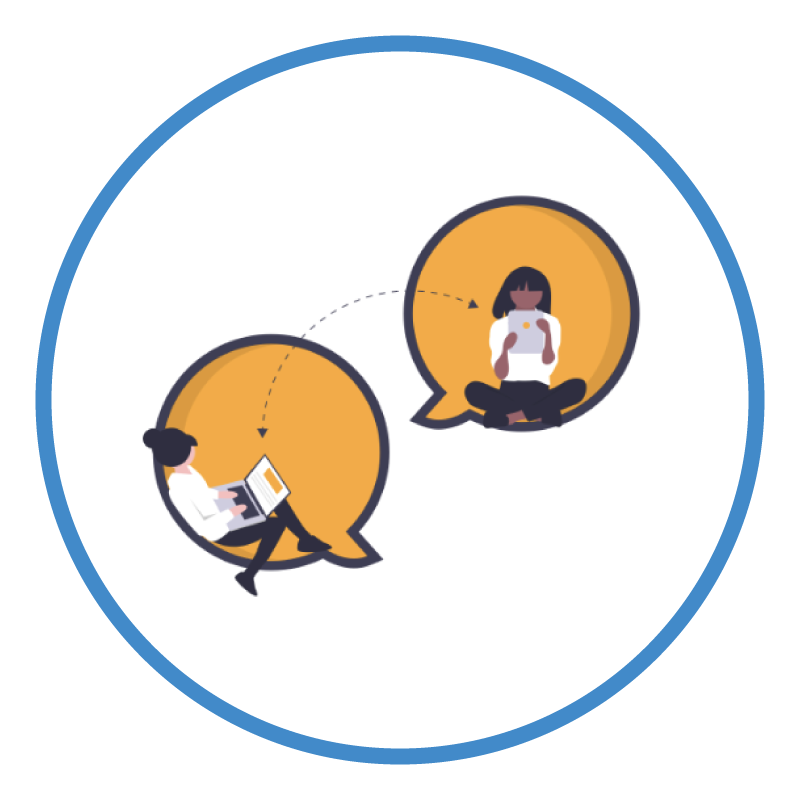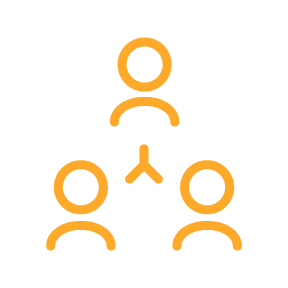
The Problem: Unequal access to higher education
Disadvantaged students are vastly under-represented at top universities. This unequal access hampers pathways to social mobility and deepens societal inequalities, evident from unequal lifetime earnings post-university.
High-achieving, less privileged students…
…are less likely to apply to top universities. They lack role models and a supportive environment that can encourage them to apply to top universities. For example, in the US, only 23% of high-achieving less privileged students apply to selective schools, compared to 48% of high-achieving, high-income students. [a]
…are less likely to receive offers from top universities. They lack application support from study counselor, teachers and family, and they cannot afford expensive preparation courses for successful applications. For example, in the US, high-achieving, less privileged students are half als likely as affluent stud nets to take ACT/SAT preparatory courses. [a]
…are struggling to finance their education. They lack the information and support to apply to scholarships and grants that would allow them to study at top universities. For example, at the most selective colleges in the US, students from the richest quarter of the population outnumber the poorest quarter by 25 to 1. [b]
…are more likely to perform poorly and drop out of uni. They lack a supportive campus community and career network, so they struggle to adjust to the new environment and feel marginalised.
For example, in 2016/2017 8.8% of less privileged students in the UK dropped out of university, compared to an overall drop-out rate of 6.3%. [c]
[a]: Giancola and Kahlenberg, 2016 [b]: Sanchez, 2018 [c]: Turner, 2019
What does the program include?
1-1 Mentorship
Each journey is unique, so the core of our program is 1-1 mentorship. Your mentor will be there to provide first-hand insight into applying and ensure you get personalised support on your application, tests and interviews. They will also be there to give you tips to make the transition from home to university easier
Tailored & Timed Content
Instead of a jungle of information, we want to ensure you get the right information at the right time. Our program team has found all the best tips and tricks for applications and coupled it up with webinars from students at top universities around the world sharing their best advice
Community
Applying to a top university shouldn’t be a lonely experience! You will be connected to the rest of your Project Access Class through Class Days and our online community. You can connect both to other mentees from your own region and to other mentees from all over the world

Who are less privileged students?
The Project Access Model of Inequality is based on the UN Layers of Inequality and the 2019 Goalkeepers Report of the Bill & Melinda Gates Foundation. With our model, we aim to recognise that the barriers holding students back from high-quality education differ a lot and often compound.
At Project Access we work to help students from across the world tackle these barriers to entry for top universities.
Why mentorships?
Research has shown that mentoring provides mentees with a myriad of instrumental and psychosocial benefits. We want to make sure that our mentees receive all these benefits and designed out mentor training and programs in line with this research and best practices employed by the most successful mentoring programs.
Instrumental benefits of mentoring include: information provision, access to new/other social networks, direct application assistance, skill set development, and promoting reflection on higher education goals.
Psychosocial benefits include: improving mentees’ self-esteem, psychological well-being, social skills , self-efficacy, and higher education aspirations.
Mentoring can also mitigate “summer melt” (i.e. disadvantaged students failing higher education enrolment despite receiving offers) through emotional support, improving university environment familiarity, and dispelling fears related to higher education.
Psychosocial support in university also can help ameliorate negative emotions caused by school transitions and increase student motivation, thereby reducing student attrition rates.
Read our full mentorship report if you want to find out more what research our mentor training and programs are built on.
Read our article on mentorship in The Boar, the University of Warwick's student newspaper.











